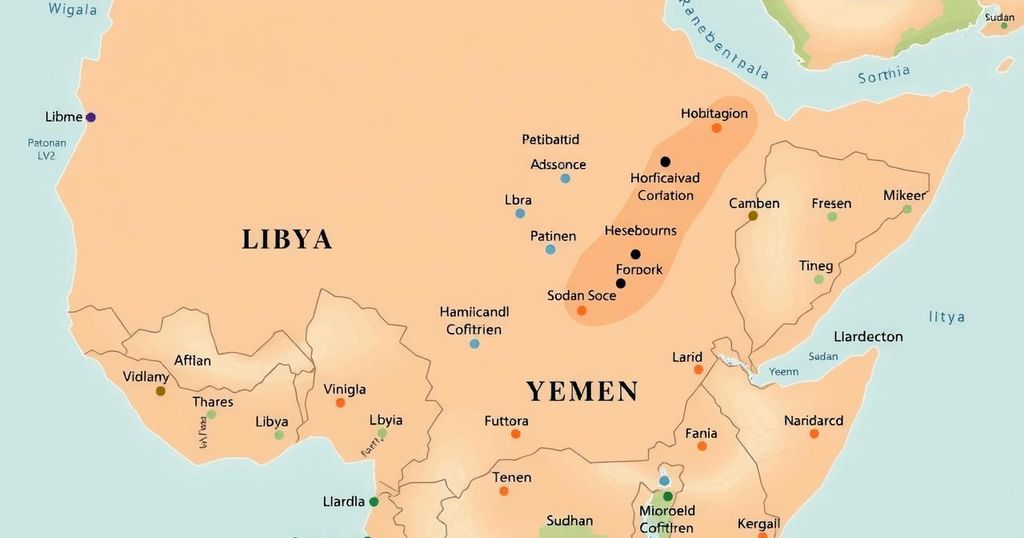The webinar by ACW and SIPRI focused on neglected conflicts in Libya, Sudan, and Yemen, exploring their humanitarian challenges and political trajectories. Key discussions included the impacts of geopolitics, foreign involvement, and the path to potential resolutions through inclusive governance and economic management. The need for a coordinated international approach to achieve lasting peace was emphasized.
The webinar organized by Arab Center Washington DC (ACW) and the MENA Programme at the Stockholm International Peace Research Institute (SIPRI) aimed to shed light on the overlooked conflicts in Libya, Sudan, and Yemen. Despite being overshadowed by other crises in the MENA region, these conflicts impose severe humanitarian challenges. Speakers Elham Saudi, Yasmeen Al-Eryani, and Manal Taha engaged in a discussion moderated by Alaa Tartir, focusing on the current state of affairs in these war-torn nations.
In Libya, the ongoing strife between eastern and western rival governments has created a fragmented state, exacerbated by the presence of foreign mercenaries. Internal political stalemates and economic mismanagement have worsened living conditions. The ongoing contest over oil revenues raises concerns about a possible resurgence of conflict in the future.
Sudan’s civil war has escalated into a dire humanitarian crisis, with over 8 million individuals displaced and millions facing famine. Violations, including war crimes, continue amid a backdrop of impotent international diplomatic efforts which remain disjointed and ineffective.
Yemen, while experiencing a temporary lull in significant fighting, continues to struggle with severe humanitarian conditions. Despite a fragile ceasefire, underlying political divisions persist, particularly between the Houthis and the recognized government, with external actors pursuing their interests complicating the situation further.
The expert panel discussed various critical issues, including the impact of shifting geopolitical alliances, the role of foreign influence, and the necessary conditions for peacebuilding and transitional governance. They explored the importance of economic management in supporting recovery efforts and the mechanisms required to ensure justice for victims of war crimes. The discussion also addressed potential future scenarios should the current staunch stalemates persist, emphasizing the need for a concerted global approach to foster sustainable peace and stability in these regions.
The webinar highlighted the pressing humanitarian crises in Libya, Sudan, and Yemen, emphasizing the need for renewed international attention and action. Each conflict presents unique challenges that require tailored political solutions and economic strategies. By understanding the geopolitical dynamics and complexities of these situations, stakeholders can work towards frameworks that promote lasting peace and accountability. Ultimately, a cohesive effort from both regional and global actors is essential to navigate these intricate conflicts.
Original Source: arabcenterdc.org




